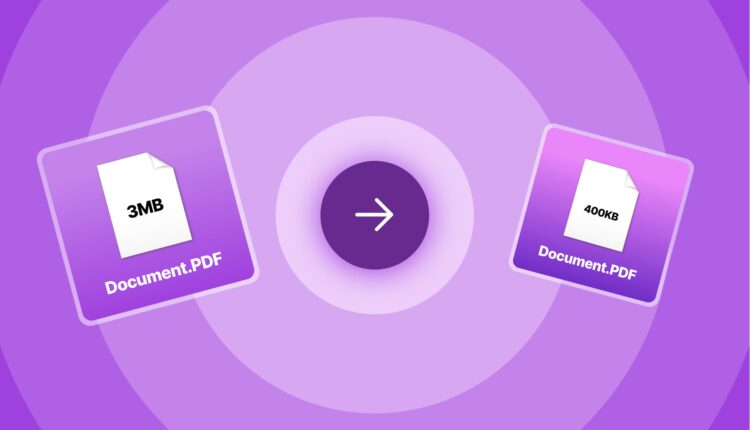Table of Contents
Word and PDF files are the bread and butter of office work, so it’s important to be able to save space on your hard drive while keeping your data’s integrity intact. Here’s what happens when you compress a PDF file.
When a file is compressed, the storing format of the file is changed
The first thing to understand is that when you compress PDF online, the storing format of the file is changed. A compressed PDF will store data differently than an uncompressed one. But here’s what you should know:
- The PDF remains a valid PDF file that can be read by all software that reads or creates them (such as Acrobat).
- The document can be opened and viewed in any application that supports viewing or editing PDF documents.
The source code itself is not changed
You may be wondering if the source code of the PDF file is not changing; what exactly is happening? The short answer is that you are simply storing it differently.
The compression process doesn’t change the content of your file: it’s still a PDF with text and graphics in it. Instead, it changes how your computer stores your data. For example, compressing a document’s pixels allows you to make more room on your hard drive without losing any information.
That means that once you’ve compressed a file into a smaller size, you can still edit it and save it as an uncompressed version!
This can reduce the size to anywhere between 30-80 percent, sometimes more
Compression is a tricky subject. It’s easy to think of it as something that makes files smaller, but that only tells part of the story. Compression can actually make files larger or smaller depending on how it’s used.
This can reduce the size to between 30-80 percent, sometimes more. The algorithm used and compressed file format will determine how much data is removed and how much space results after this data is removed.
“PDF compressor tools can compress a PDF of up to 2GB,” as Adobe Acrobat professionals state.
The compression process usually means that some data doesn’t get stored during compression
The compression process usually means that some data doesn’t get stored during compression. Instead, it’s a trade-off between file size and how much data is lost.
There are two ways to combat this data loss: store more data in the same space or don’t compress it at all. The first option is an obvious win because you can actually store more information than you otherwise would have been able to before compressing it if you increase your storage capacity by more than the amount of data you lose when compressing the file.
With PDF files, compression will happen in a way that breaks up many files into different pieces that can be put back together quickly
Compression can be thought of as a way to save space. It breaks up the file into smaller pieces, compresses them, and then puts them back together when needed. This doesn’t affect the performance of your computer or device because it’s done quickly.
The PDF file format was designed to be a way to store documents in a way that’s easy for computers to read and write. The format was meant to work offline, so it would work even if there was no Internet connection available at all times.


